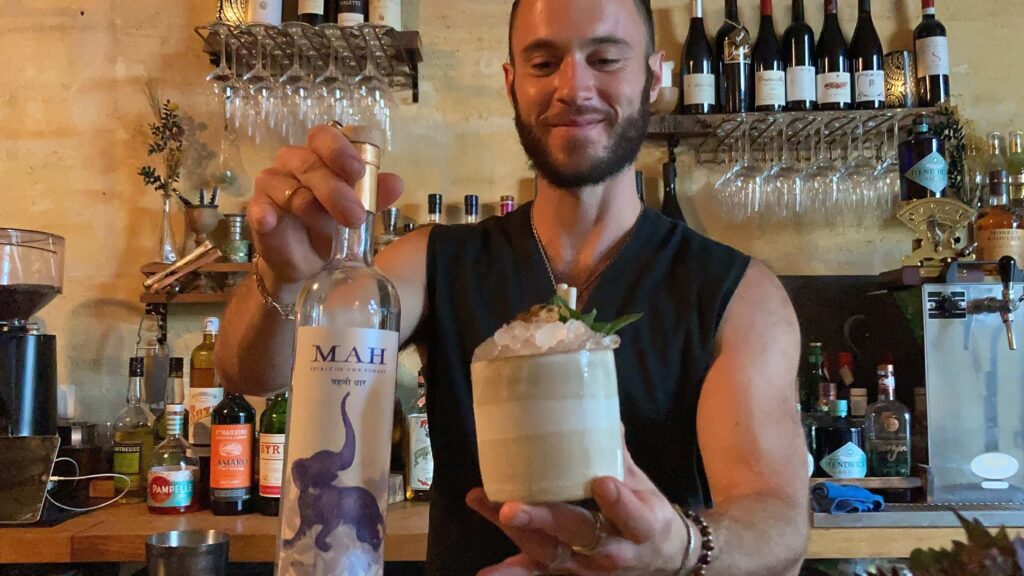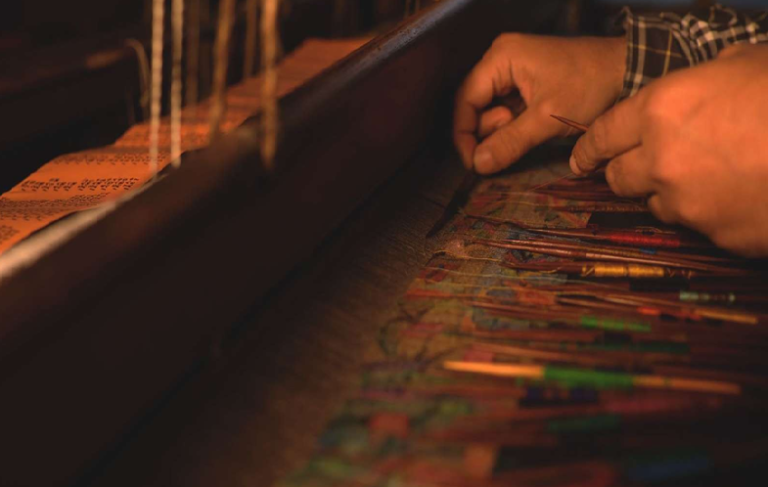Indian history and its alcohol connection go way back in time. It has been made and consumed for centuries. Today, alcohol consumption in India paints a picture of people with glasses of wine, saying cheers over umpteen rounds of whiskey or chugging down pints of beer. India’s oldest earthly brews like Mahua have been lost in the pages of time and existing indigenous spirits are often considered subpar.
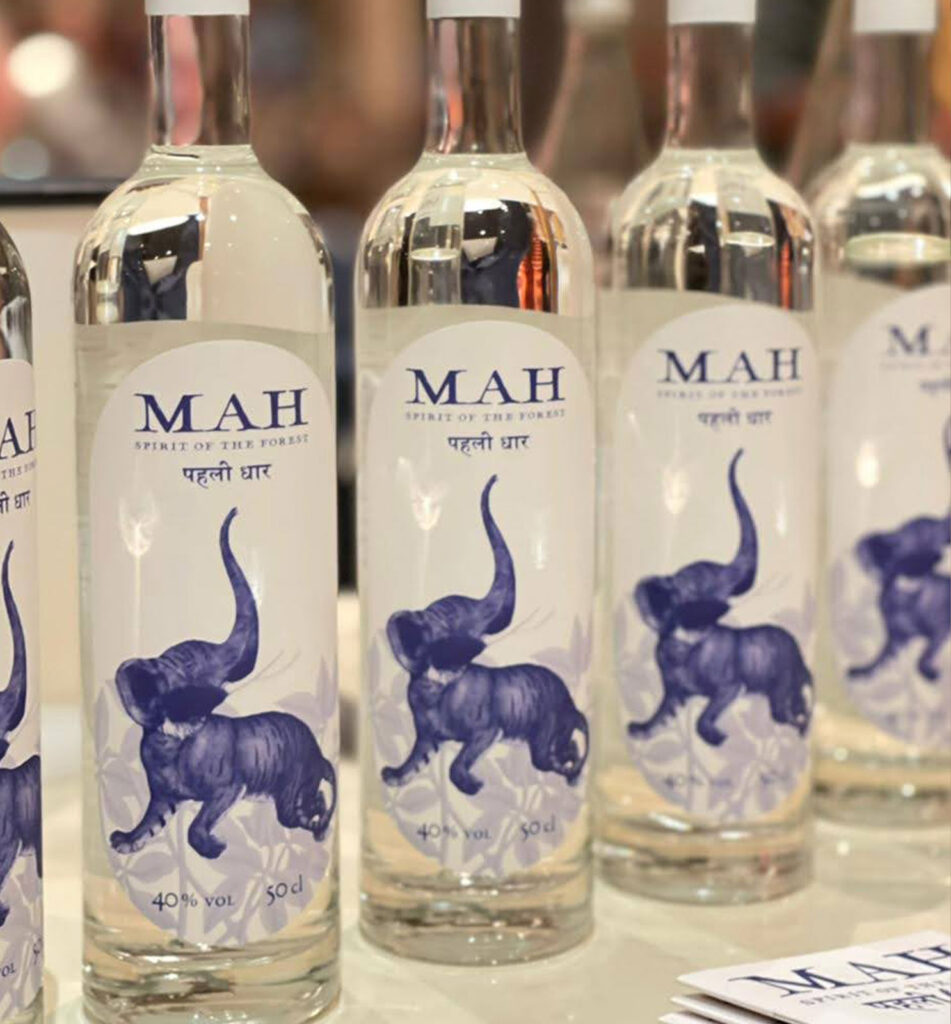
An effort towards reviving indigenous brews is MAH Spirits, an Indo-French collaborative tribute to India’s oldest indigenous alcohol – Mahua. The Mahua tree is intricately woven into and around the lives and culture of the Adivasi communities of the Bastar region. Follow our conversation with Rahul Srivastava, to learn how MAH Spirits is creating an environmentally sensitive way to give Mahua its long-overdue global recognition and appreciation.
Harnessing the Power of Collaborations – The Beginning
I have mostly been a writer, researcher or urbanologist, with hardly any business background or experience. However, I was always fascinated with narratives of people collaborating. We often don’t develop enough partnerships in India to do business across sectors, with people who come from versatile backgrounds. Besides, social distances are bigger, which makes collaborations more challenging.
Around 14 years ago, I started working in urban planning with a Swiss friend, Matias Echanove, who lived in Mumbai. We partnered to establish Urbz, an experimental action and research collective specialized in participatory planning and design, where we worked with citizens, associations, and local authorities. Through Matias and our urbanism projects, I met with Alexis de Ducla, a French businessman living in India for the past 20 years. I was very impressed by his innovative projects, which included starting a bakery run by young men from marginal communities selling bread to elite families in Chennai.
A few years ago, my Gmail account had a photo of a Mahua tree. Alexis kept inquiring about its significance. I confessed to him my dream of establishing Mahua as a modern commercial product without forgetting how it is ultimately tied down to the history and culture of Indian tribal communities.
Alexis and Matias shared my enthusiasm and vision for Mahua. Alexis roped in entrepreneur Gilles De Labarthe from Paris to complete our core team. We all traveled to various Adivasi settlements in and around the Bastar belt to learn more about Mahua and its social history. We explained to potential local partners our initiative, about how it is not just about building a business but also striking a balance between cultural, sustainable, and economic norms of doing business in a way that is relevant today. In 2019, we set up MAH Spirit in France.
Mahua – Spirit of the Indian Forests
From being banned to becoming a brand, the story of this drink is fascinating. The Mahua tree is at the center of Adivasi life. Their traditions are incomplete without the stories, songs, and sacred chants and the way it sustains life. Its flowers, fruit, leaves, and even branches are used as food, currency, and medicine.
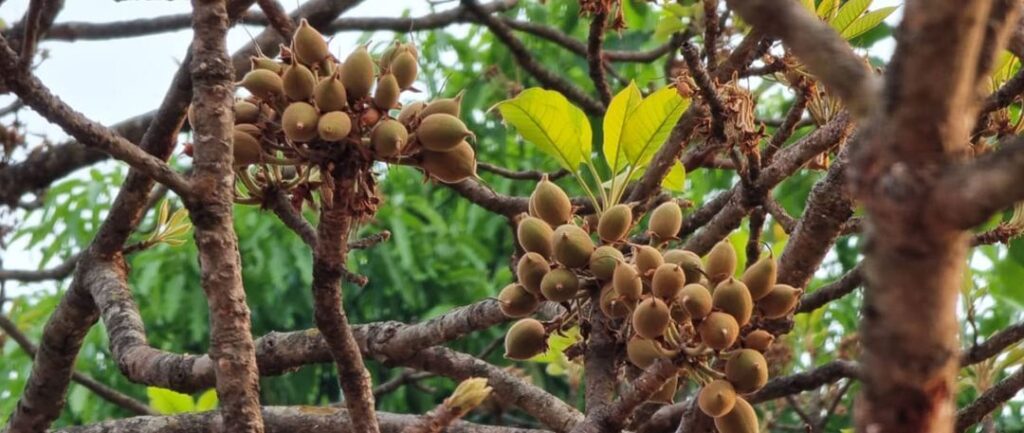
Despite its role in daily Adivasi life, colonial restrictions classified Mahua as an intoxicant as well as a danger to public health. The colonizers peddled stories of Mahua consumers being “uncivilized” and immoral. The complex and biased licensing systems continued to tax and penalize people for Mahua production and consumption. In India, Desmond Nazareth, from Goa has made great moves in challenging these systems and creating a Mahua label that is a significant success. By battling age-old labels on Mahua consumption, we altogether hope to establish Mahua as the face of Indian heritage liquors.
Fostering a French Connection with Mahua
Mah is an Indo-French collaboration, registered in France. By popularizing the drink and its story globally, we aim to change its perception back here in India as well. We call it a tribute to Mahua.
Rules in India are still stringent and as far as country liquor is concerned, people have been historically shy to embrace it openly. Mah is our attempt to make a drink that has a visible and proud connection to India’s forests. Sourcing the best flowers from local communities and licensed traders, we carry out the distillation with the proficiency and skills of the Jarnac region, completing the French side of this collaboration. We aim to leverage the deep French understanding of spirits in projecting Mah globally. We also hope to bring back this expertise to India as soon as we can. In our efforts to do so, we have partnered with Shubhank Chandrakar of Bastar Botanics Private Limited through a joint venture – Bastar Spirits.
People often ask me if Mahua’s revival is a sign of decolonization or just another wave in the ocean of capitalism. What needs to be kept in mind is that there are many possibilities of doing business, and this is the time to innovate, whether by harnessing the potential of indigenous modernity and forest economies or through international collaboration that connects different kinds of local histories.
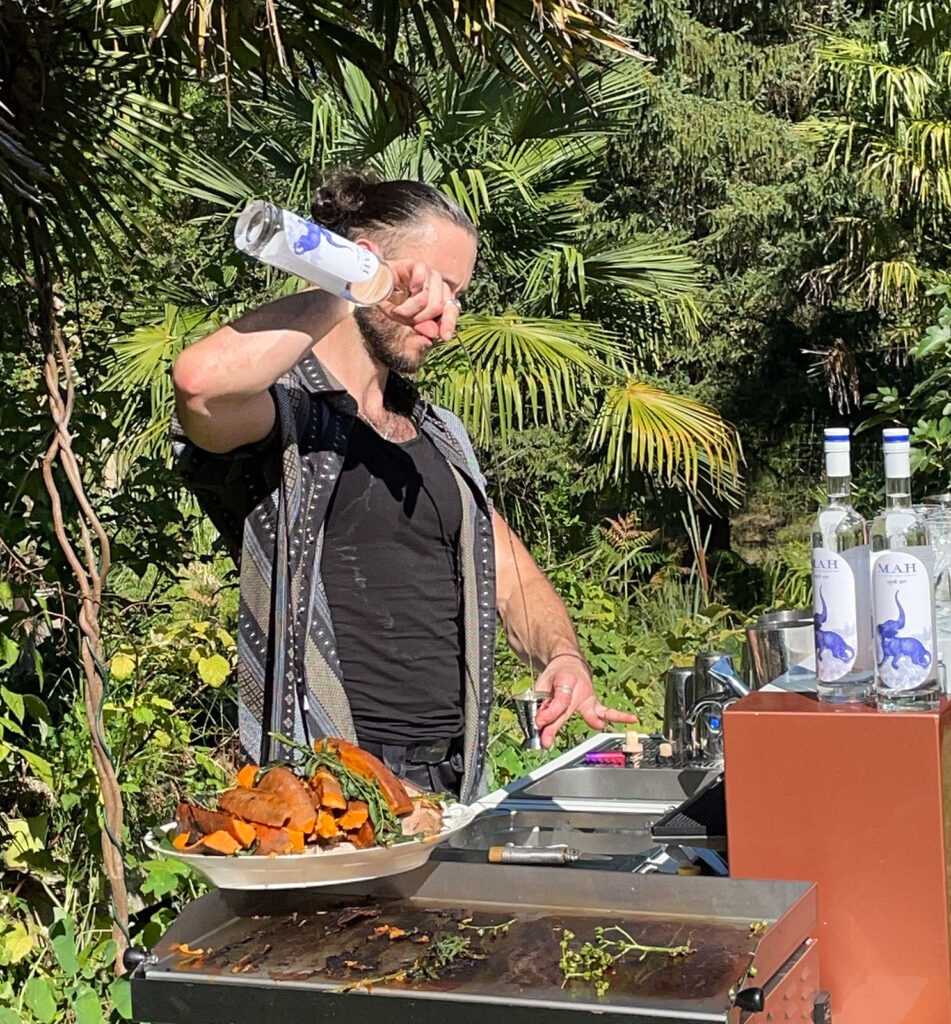
As we sell MAH, walking through different bars in France, and pushing our product like any other, we hope to build a community of environmentally conscious people who will relate to the drink and its story.
MAH Fellowships
The MAH Fellowship program was up and running even before we started commercializing our product. Our vision is to develop a network of locally managed projects that connect to regional, national and global businesses in a manner that gives them a strong hold on their environment, habitat, and resources. In today’s world of environmental crisis, no business can be truly sustainable unless it is accompanied by locally grounded activities.

Our fellowship is aimed at fostering such fellows who work to integrate traditional and modern systems into the mainstream economy ensuring sustainable environmental practices. We want to do our best to integrate forest-based traditions with contemporary economic aspirations.
Looking Forward with High Spirits!
Business schools teach very narrow definitions of how business is done. But to define is to limit. With Mah Spirits, we are here to change the rules of the game. Only when business is connected to people’s lifestyles in as inclusive and diverse a way as possible, can it bring a positive force in society.
The interdependence of forests, indigenous communities, and the development of local and global markets for sustainable modern economies is at the heart of Mah. With a foundation of responsible drinking, we intend to develop strong local associations for a contemporary economy around mahua, partnered with the Adivasi histories.
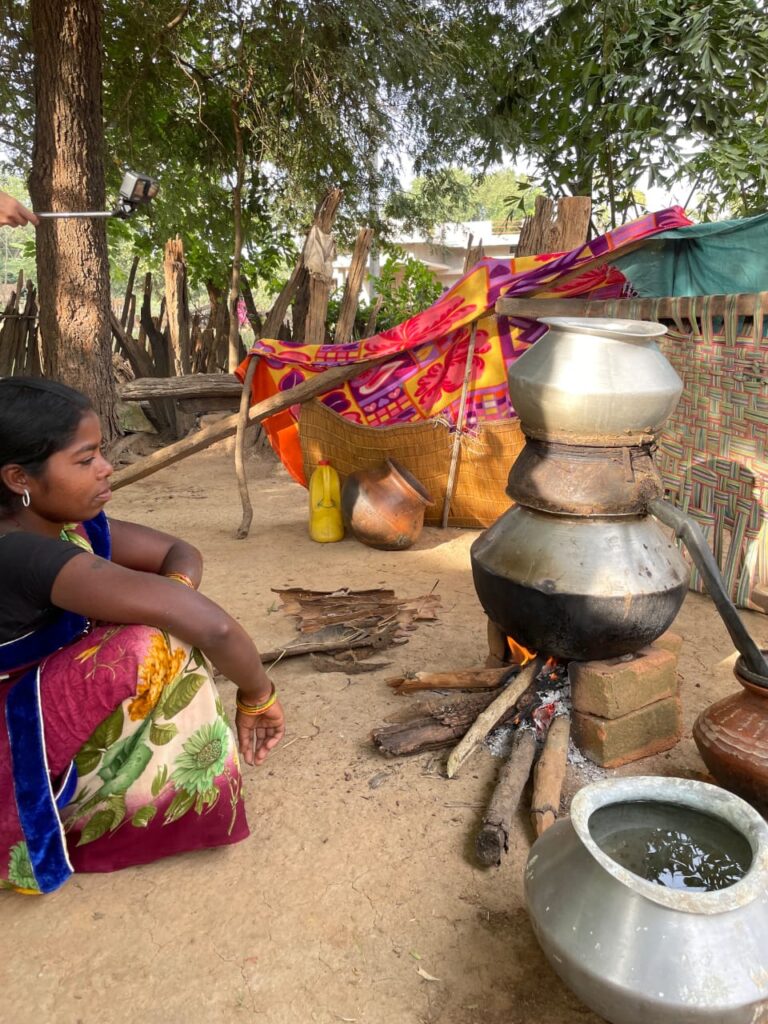
Mahua, with its significant environmental value, needs to be recognized and valued more than ever. Its social status in India needs to evolve.
Mah Spirits is an earnest step towards achieving respect and recognition for Indian country liquors in the world of spirits. And we believe treading forward by building partnerships, will indeed prove to be as sweet as the flower of this magnificent Honey Tree – Mahua!
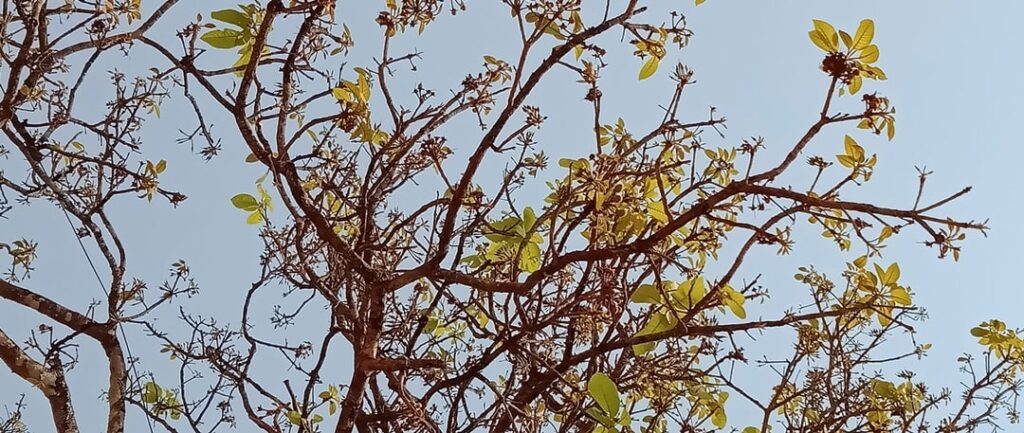
NICEorg wishes Mah Spirits the best of luck in its journey ahead!
If your cultural enterprise is in any of our five focus sectors and you would be interested in being featured, write to us at NICEorg
Read more about the need for Feni and Mahua Entrepreneurs and the lessons from Scotch Whisky.
